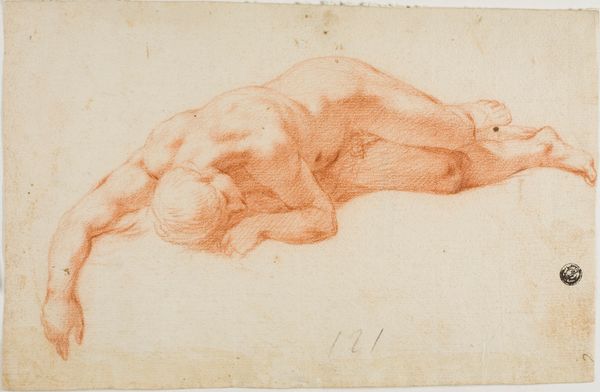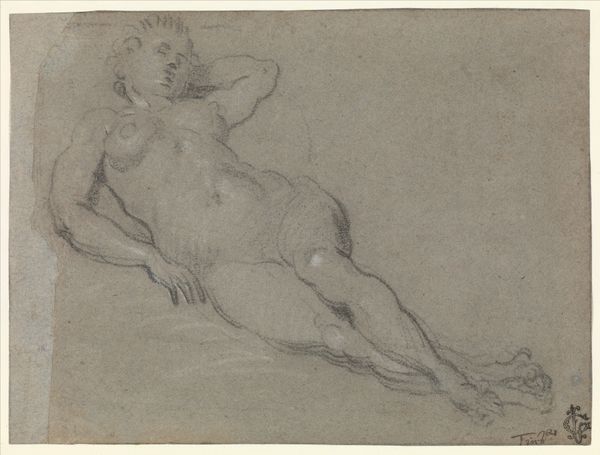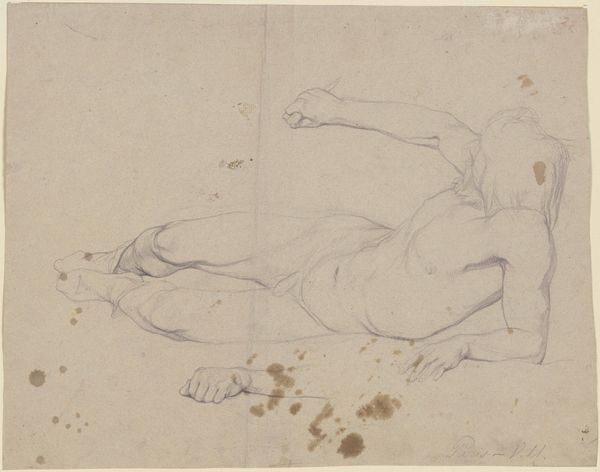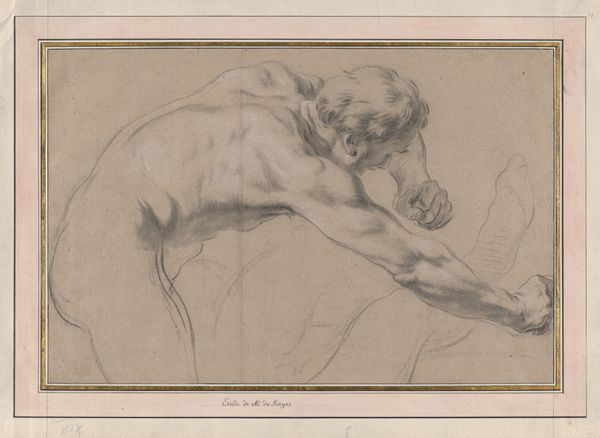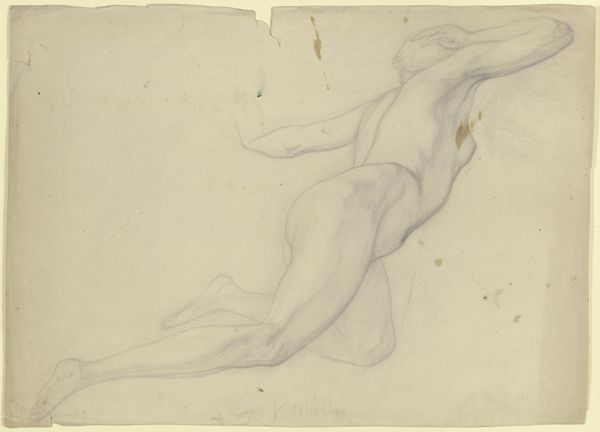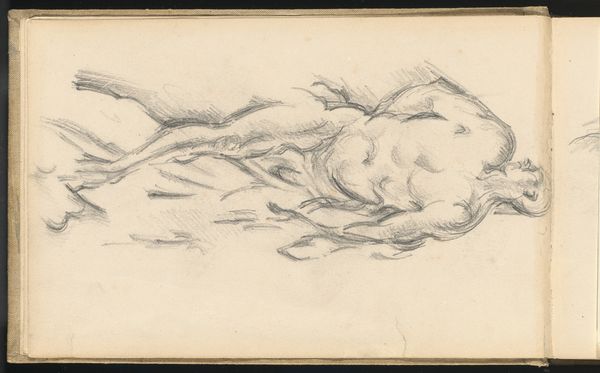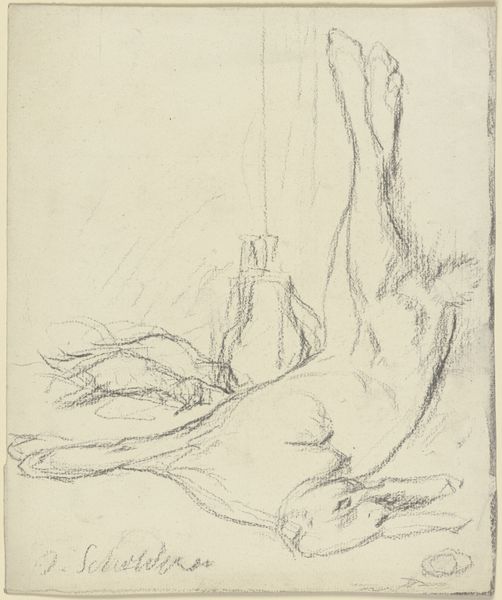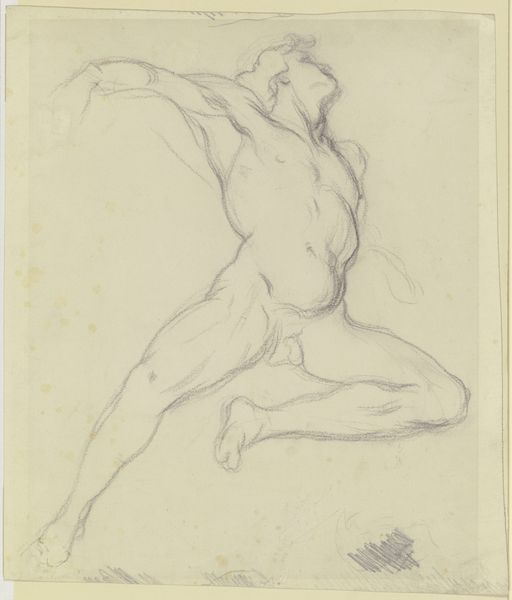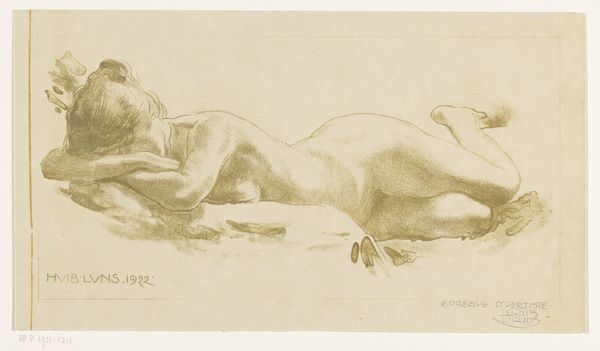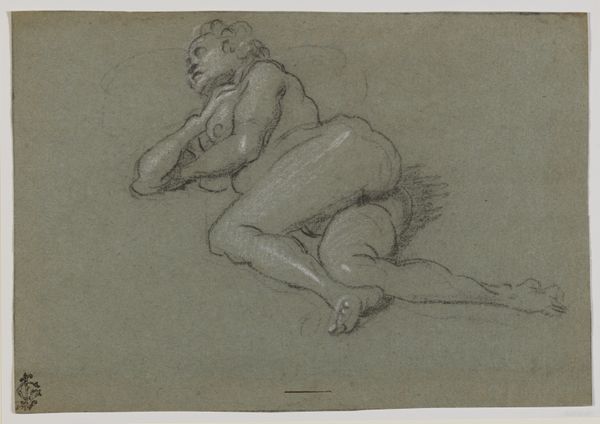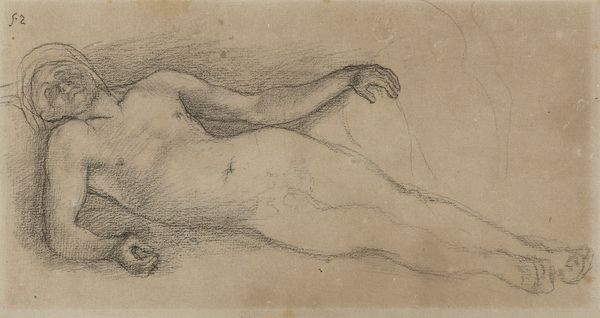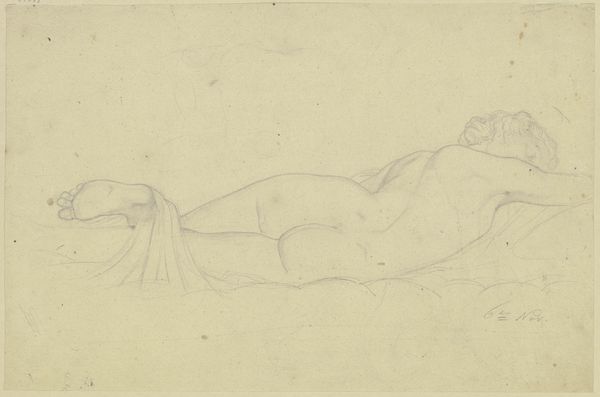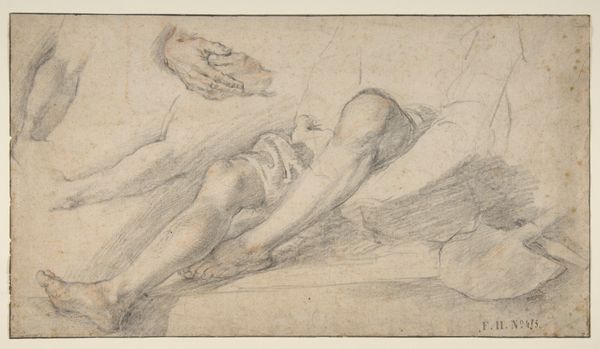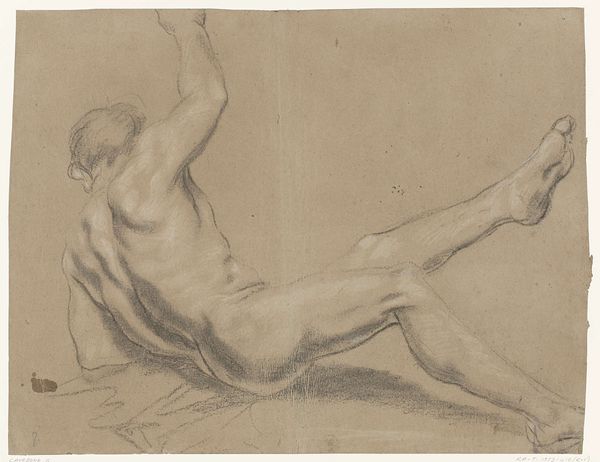
drawing, pencil
#
drawing
#
baroque
#
pencil sketch
#
charcoal drawing
#
figuration
#
pencil drawing
#
pencil
#
northern-renaissance
#
nude
Dimensions: height 496 mm, width 304 mm
Copyright: Rijks Museum: Open Domain
This is Wijbrant Oosterdijk’s study of a reclining male nude, drafted in the 17th century. The male nude, a staple since classical antiquity, embodies ideals of beauty, strength, and heroism. Here, however, it’s incomplete, lacking a head. The headless figure evokes a sense of anonymity and objectification. Think of ancient sculptures of gods and heroes, meant to inspire awe and reverence. But when we remove the head, the seat of intellect and identity, what remains? The body becomes a mere object of study, a form to be analyzed and imitated, devoid of individual personality. This recalls the fragmented sculptures of antiquity, unearthed during the Renaissance, that inspired artists to reconstruct idealized forms. Oosterdijk engages with this tradition, yet by omitting the head, he creates a tension between admiration and alienation, inviting us to contemplate the complex relationship between form, identity, and the gaze. The act of studying the human form, whether in art or science, often involves a degree of detachment.
Comments
No comments
Be the first to comment and join the conversation on the ultimate creative platform.
